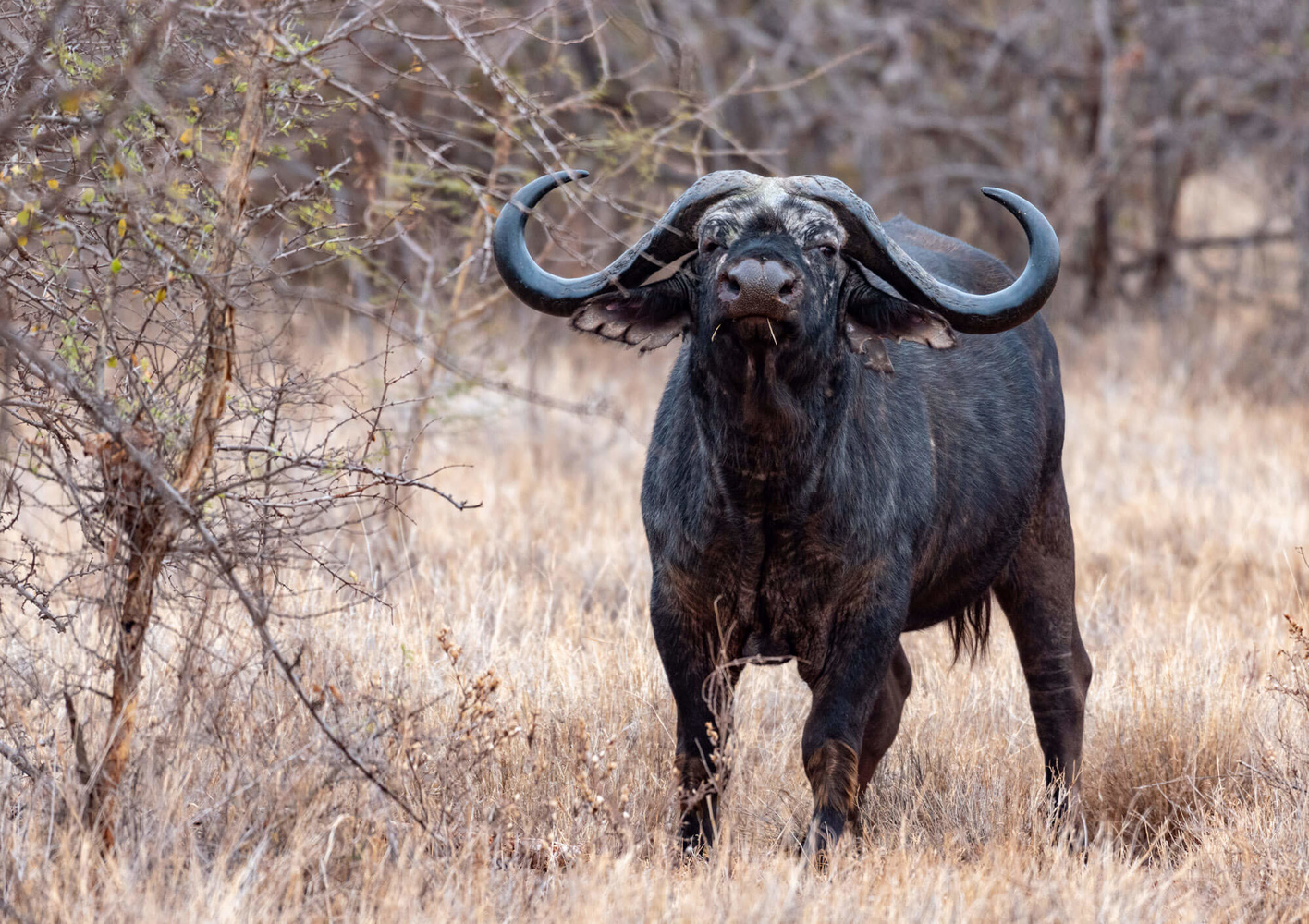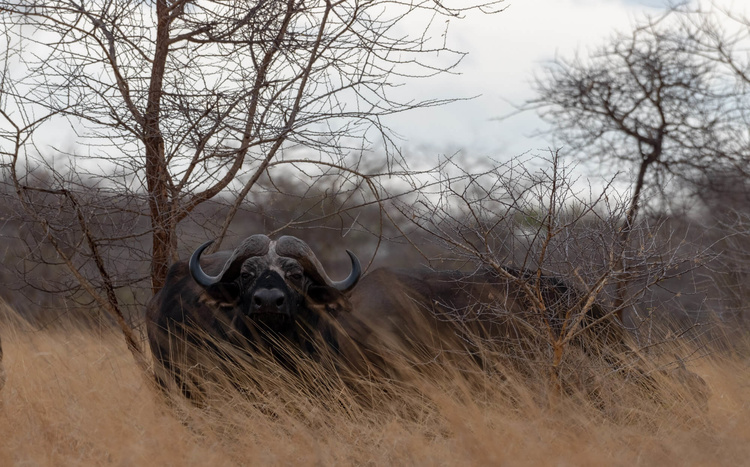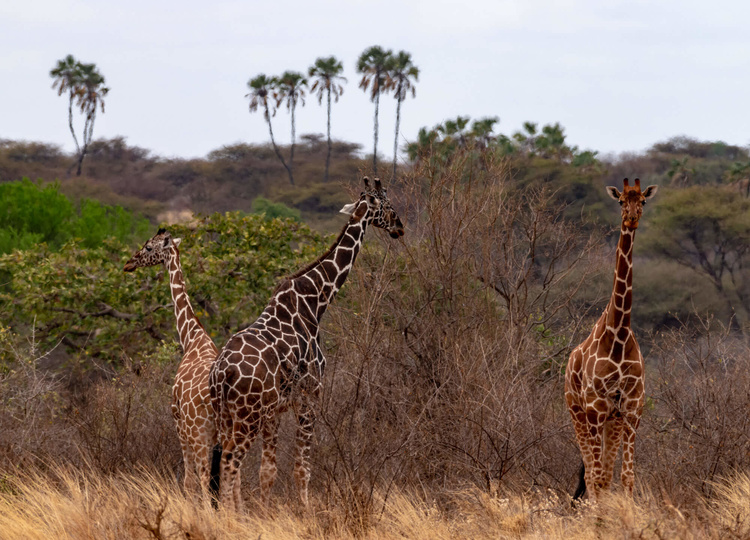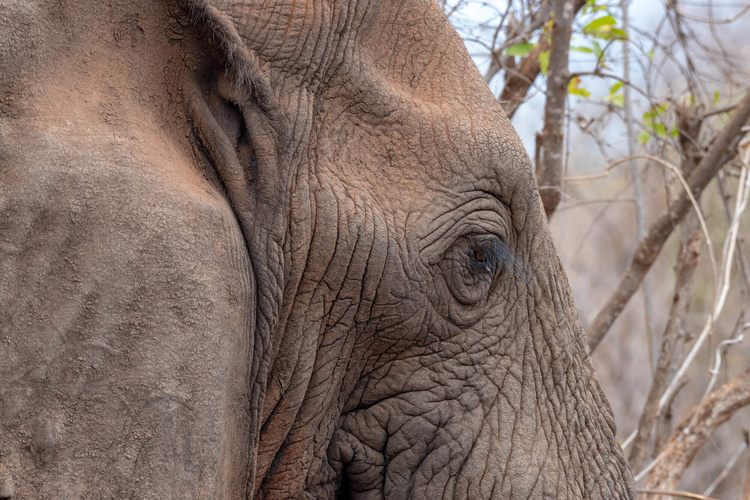Short safari to Meru National Park
From US$1,520 per person
Itinerary
-
Day 1Nairobi - Meru National Park
Depart Nairobi after breakfast, with packed lunch, and proceed to Meru park. If time permits, late afternoon game drive followed by dinner and overnight at the lodge outside the park.
-
Day 2Meru National Park
Full day spent exploring this park, which now has game viewing that easily matches or exceeds the sort of safari experience you will have in the popular parks, with increasingly frequent sighting of all the Big Five.
Brilliant and beautiful on a magnificent scale, the Meru and Kora sister parks feature luxuriant jungle, coursing rivers, verdant swamp, khaki grasslands and gaunt termite cathedrals all under the sky’s great blue bowl. Little visited and utterly unspoilt, few places are comparable to the remote and rugged atmosphere found here. Sightings include Grevy's zebras, elephants, Bohor reedbucks, hartebeests, pythons, puff adders, cobras, buffalos and more than 427 recorded species of birds. -
Day 3Meru - Nairobi
Breakfast and depart for Nairobi, arriving in the afternoon, end of our services.
Feel free to add another day - contact us
Prices
Price conditions for your safari in Kenya
Price Per Person
Price Include
- Transport in a tour mini-bus with a pop-up roof or 4x4 (depending on the option chosen)
- Unlimited kilometers
- Services of our professional English-speaking driver guide
- National parks Entry Fees
- Drinking Water (refer below)
- Hotel accommodation on Full Board basis sharing room (refer below)
Not Included in the Price
- Visa fee
- International flight
- Transfers where not applicable
- Travel and cancellation/medical insurance cover
- Hotel accommodation in Nairobi
- Single Room (under single Supplement terms)
- Beverages, Alcohol, Spirits
- Reusable Water Bottle for refilling (Very Important)
- Photographic fee with the local people
- Eventual tips
- Any items or expenses of personal nature
- Any other items not mentioned in the inclusions
Travel info
Here is
some practical information for your safari in Kenya
Accommodation
during your safari in Kenya
- Ikweta safari camp (outside park)
Transport in safari
Other
Useful Information to travel in Kenya
- No plastic bags in to Kenya
- No plastic bottles in the Game Parks and Reserves
- Carry your COVID Vaccination Certificate
Entry requirements for Kenya
- Mandatory passport valid 6 months after your return date
- Since January 4, 2024, entry to Kenya has been subjected to an electronic travel authorisation (ETA), in place of a visa.
Sanitary conditions for Kenya
- Yellow fever
- Malaria
- Consult your GP or an International Vaccination Centre to assess your state of health and receive health recommendations, particularly concerning vaccinations
- Set up a personal pharmacy
Climate
What to
Pack for your safari in Kenya
- Good quality sandals
- Good quality light walking shoes
- Casual shoes for evenings
- Fleece jacket or warm sweater
- Practical safari jacket
- T-shirts
- Short and long sleeve shirts or blouses
- Shorts and long casual trousers
- Casual light dresses or skirts
- Enough underwear, socks and hankies
- Bathing suit
- Toiletries, lip balm and scarves
- Miniature wet towel and Kleenex (enough)
- Small backpack
- Small reusable water bottle
- Small flashlight or headlamp
- Safari hat or cap
- Personal medication
- Important Quality mosquito/insect repellent (for body)
- Waterproof sun blocker cream/sunscreen
- Good quality sunglasses
- Binocular and Guidebooks
- Camera with extra battery and memory card




